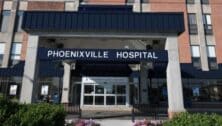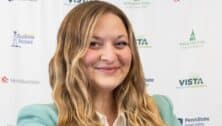Chester County Leadership: Roger Zacharia, CEO of Ambler Savings Bank
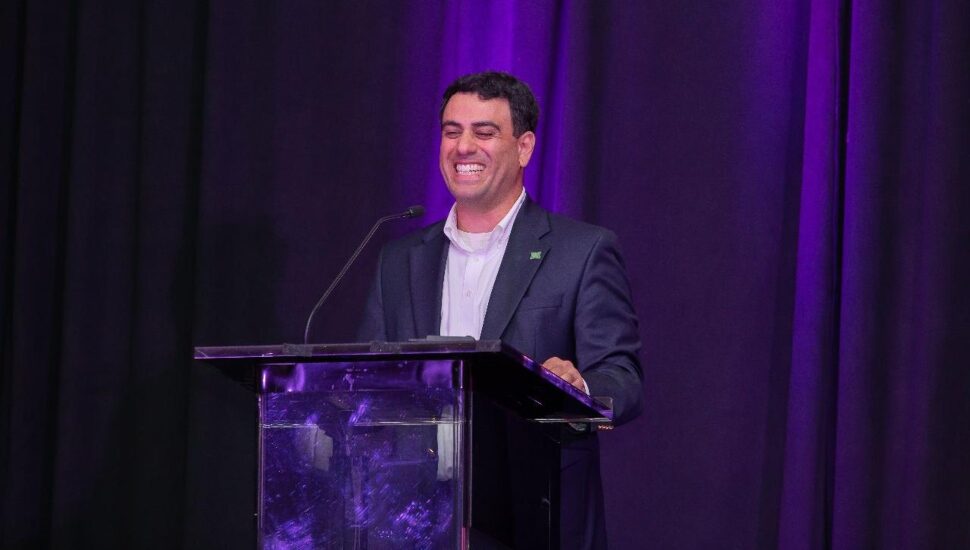
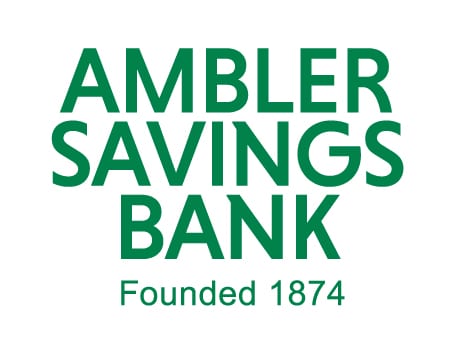
Roger Zacharia, the CEO of Ambler Savings Bank, spoke with VISTA Today about growing up in Huntingdon Valley as the son of hard-working immigrants; playing baseball and becoming passionate about the strategy of the sport; and being drawn to the immensity of Penn State after graduating high school in a class of just 60 students.
Zacharia also discussed the difficult times in his industry during the Great Recession; how he ended up at Ambler Savings Bank; what makes the bank unique; and the challenges and opportunities that lie ahead.
Where were you born, and where did you grow up, Roger?
I was born the youngest of two boys in Huntingdon Valley, in Montgomery County
What did your parents do?
My parents are both immigrants. They came to the United States in the 1960s looking for a better life. They followed family first to southern California before permanently finding a home in Huntingdon Valley.
My mother was a teacher. She taught at the same school I attended – Academy of the New Church – in Bryn Athyn. My father was and still is, even though he’s retired, a practicing tax accountant. Much of my analytical thinking comes from my dad.
What memories do you have growing up in the area and with your family?
Growing up, my family was always very prevalent, not just my immediate family but my extended family. My mother is one of seven, and my father is one of four.
All of those family members came to this country, so summer vacations and holidays were spent visiting with cousins, aunts, and uncles. It was a pleasant experience growing up.
My parents are both very hardworking people. I watched them and learned a lot of their traits as a young child. That’s been a big part of what makes me successful in my life today.
I’m very fortunate that my family decided to put roots down in this area. The community is a wonderful backdrop for me and was throughout my childhood.
Did you play any sports growing up?
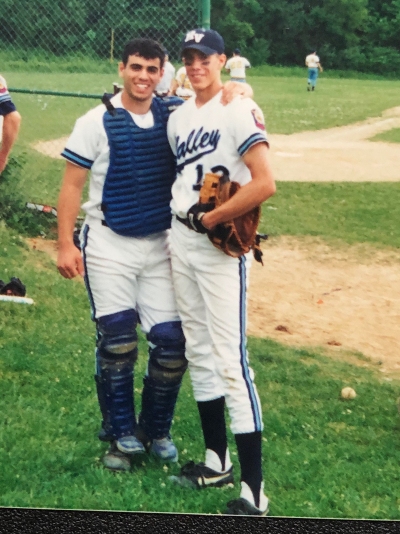
Growing up, I was a baseball player and played through high school, American Legion, and travel ball. I was a catcher. I was a decent player, but everyone thinks they’re good until you really start playing with the great players, the ones who were recruited and drafted.
I loved being the catcher. I was involved in every play of every game. Every pitch starts with you, and everyone in the field is looking at you. A good catcher is the quarterback of the team. As I got older, some of the game’s tactics became intense, and I really enjoyed that.
I coach my kids today, but at one point, I was considering coaching at a higher level because I really enjoy the strategy part of it.
When did you discover your leadership talent?
I never thought of myself in those terms back then. Now, when I look back, I see it. Whether in the classroom or on the field, I never considered myself a leader. It’s probably because I’m not the most vocal guy. It wasn’t until my mid-20s that I realized I could lead people when I became a supervisor. I never defined myself in those terms.
What kind of music were you listening to back then?
Always rock. I liked the 70s and 80s. I really liked the Beatles, Sting, and Bruce Springsteen.
Did you have any jobs in high school?
I was a caddy for 6 years at Philmont Country Club in Huntingdon Valley. My parents lived right off the course, so it was an easy walk to work. I worked there throughout high school and the first year of college. I wasn’t a big golfer, but I liked the independence of the job. It was a young man’s job – carrying two bags to make money.
In college, I had a few professional internships through Penn State University. The school had a wonderful partnership with many organizations. Through the business school, I acquired two internships over the summer. During the summer after my junior year, I interned at Deloitte & Touche, one of the world’s largest accounting firms.
Why Penn State?
I didn’t have a legacy or anything at PSU; my older brother went to the University of Penn. I took a trip there with my parents to check out the school during my junior year of high school. Because I came from a small, insular town, I wanted the opposite for college. I graduated high school with 60 kids!
I knew I wanted to get into business, but I wasn’t sure exactly what. Penn State had so much to offer in terms of majors and focuses.
Did you ever get lost at Penn State?
I did my first year, and I liked it. I enjoyed blending in and finding my own way. Growing up, I was with the same small group from kindergarten through 12th grade. At Penn State, you’re exposed to a wider variety of people, demographics, races, and religions. It was a wonderful entrée into the rest of my life. If I had stayed in Bryn Athyn, I never would have grown or experienced new things.
Looking back, was Penn State a good choice for you?
Absolutely. You could find whatever you wanted at Penn State. You could get lost, or you could be found. If I had gone to a smaller school, it probably would have stunted my growth.
Looking back, who were the people who saw promise in you and opened doors along the way?
There was a professor at Penn State who has since passed away that I really liked. We called him ‘The Bear.’ I never took his class, but he would host mixers for students in the accounting group and prospective employers. It was a chance for those employers to see us students in a social setting and decide whether we could fit into their culture. It was great exposure for us students.
My father was a tax accountant, and I knew that was possible. Still, it wasn’t until I got to Penn State and took the business classes that I realized I had a lot of acumen for business, and the topics came easy to me. My own bias reaffirmed that this was the path for me.
Who saw promise in you beyond college?
At Deloitte, I worked with many folks who helped me along the way. I don’t know if there was any one person, but a few people in management who were mentors. I left Deloitte twice, and when I was ready to move on, I knew it was because they genuinely prepared me for the next step.
I remember coming out of school and looking at the Big 6 firms. The feedback on two firms was that they looked down on others. Deloitte wasn’t like that, and they helped me grow in my role and beyond.
How did you end up at Ambler Savings Bank?
In the 1990s and early 2000s, Deloitte specialized in auditing and serving community banks. There were many more community banks around then than there are today. There was an edict from Deloitte upper management to focus on larger businesses to make more money. They asked us raise our fees tremendously forcing many of bank clients to leave the firm. That was 2005-2006. I specialized in banking then and really liked it, but all my clients began disappearing. I knew I needed to re-specialize and pick a different industry or move on. I was 29 years old and recently married. I became the CFO of the Asian Bank in Chinatown and served in that role for 2 years.
We had all kinds of government regulation issues in my time there. I had a crash course in being the operations and finance person at the bank. I moved on to a Korean bank called MoreBank. That bank had its own problems! It didn’t have enough investment to grow. I was there for two years, and I learned a lot. Even though I knew banks at Deloitte, you don’t really know the banking world until you get in there and get your hands dirty. It’s like going to school versus getting a job. I had four years of experience in operations, finance, and regulatory matters at these community banks.
It was a tough time for banking during those years.
It was an extremely challenging time! 2006 – 2008 was a scary time to be a banker, even more so at a small bank with trouble during the good times. There was a time when I thought to myself that I may need to leave banking altogether.
Ambler Savings Bank was run by a man named Martin Brown, my predecessor. He joined the bank in the early 1970s and was getting ready to retire. The bank put together a wish list of things they wanted in a new president, and a headhunter began the search. A year later, they still had not found someone to fill the position that met their criteria. One of the non-negotiable conditions from the bank was to find a new leader who lived in the area or willing to relocate to Ambler. I lived in the next town! One of the things that makes my bank special is the direct connection our employees and Board of Trustees has with the communities we serve. We all live locally, raise our families locally, and have a personally vested interest in seeing our towns thrive.
I was only 33 and submitted my resume to the headhunter. They were hoping for someone more seasoned, but a friend of mine was persistent with the firm, and they took a second look at me. I met the headhunter, and I impressed him, so he introduced me to the bankers. I had several meetings over several weeks and months, and eventually, they hired me for the position. It’s been 12 years since! Hopefully, this will be my last job; I don’t see myself ever leaving.
Were you green when you came in?
I’m still green! I will be 12 years at the bank and 8 years as the President and CEO in May. I’m still learning things every day. I read everything I can get my hands on and talk to everyone I can.
I’m so active in the Pennsylvania Association of Community Bankers – I’m the Chairman this year – because I wanted to meet and speak to more bankers. I’ve taken some trips and visited many of these bankers in their banks. One of the reasons is to make myself a better banker. I have no shame in taking someone’s idea, giving them credit, and applying it here. If you take the approach that you know everything, you have nothing else to learn, and you’ll quickly fall behind the competition.
You’re a quarter into 2022. What are the challenges and opportunities you’re focused on as bank president and personally?
A few things. We are two years into the pandemic, and things have changed drastically. We are much stronger and better equipped to handle the future than we were two years ago. At the time, I thought we were doing just fine, but these last few years have forced us to learn, make difficult decisions, and think critically in ways that we never thought of! I look back now and feel the last two years of experiences were invaluable. The opportunities are endless.
After many consolidations, there is a gap in banking, especially in the community banking world. The same thing that happened in community newsrooms is happening in community banks. No new banks are starting up to replace those merged out of existence. The folks who need personal banking are not getting that from their larger banks. If you were a long-time community bank customer and used to a deeper connection with your bank, you no longer have that type of relationship with your larger bank.
The challenge is to let people know who we are and why we are different. The differentiate argument is sometimes difficult to articulate to strangers; the people who know us love us!
What makes Ambler Savings Bank unique?
We have 95% of the technology that a larger bank has. If you want online and mobile banking conveniences, we have them. If you’re a more complex business, we have a great cash management product. In addition to the technology, I have longer-tenured people, well-trained, better equipped to serve their market, very loyal, and vested in the bank and the community. You can’t have that connection if your bank changes names, consolidated, and the headquarters has moved out of state. If you’ve been a customer for 40 years, we’ve been your bank for 40 years. That connection gets broken when these consolidations happen. We can offer the products, services, and technology that people want and the personal touch that people need.
We picked up so much business in the pandemic simply by answering the phone and answering emails from scared small business owners. They realized that their larger bank call center wasn’t there for them. The largest businesses were served by those larger banks but not the small businesses who needed it most. We were in a position to capitalize on that opportunity. We were ready when the phone rang.
What are you focused on personally?
We are going through a huge technology revamp and investment, both on the loan and the banking side. We did an exhaustive search during the pandemic to find better vendors utilizing the best technology, and love the next technology we’ll be rolling out soon..
It’s a challenging job market, as everyone knows. People’s expectations for compensation and work-life balance have been flipped upside down. We compete for good people in a hyper-competitive market, but we will win. We know that to be successful, you need the best people.
We have a massive opportunity on the customer side with people being disenfranchised by larger banks. We are poised to continue to capitalize on this. The future is bright. It’s a great time to be a community bank!
What do you do with your free time, Roger?
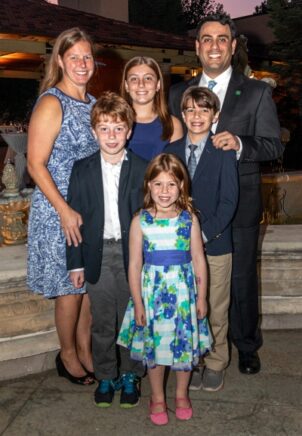
My wife Mandy and I have four children. High school, middle school, and two in elementary school. They are very active! I coach some of them in sports throughout the year. It was easy with one but got progressively more challenging as they all grew. My evenings are spent on fields and in gyms year-round. Mandy runs the household and makes sure the train stays on the tracks. We form a good team, and we wouldn’t survive long without her.
As I mentioned, I am the Chair of the PACB, so that takes up a lot of my time. All in all, I don’t have a lot of free time!
Do you read much?
I do, but a lot of it is about banking. I read about a dozen publications daily and another 5-6 weekly. I like to immerse myself as much as possible in the local news, some national news, and banking news. I like to read the local news because so much of my life and my business is anchored in our community. Unfortunately, I don’t read much for pleasure. I just don’t have the time.
In this era full of gloom, what gives you hope, Roger?
My kids and the other young people I interact with through my kids. Their generation is so optimistic, and maybe every generation at that age is. When I look at them, I see their optimism and abilities: technology, science, and math. We have some absolutely brilliant kids coming through our school systems. You project out, what is this 9th grader who is acing AP calculus going to do when she’s 35 years old? What world problem is she going to solve? If you want a different spin on the world, look at what the young people are doing. You’ll have a hard time being pessimistic after seeing what they’re up to.
Finally, Roger, what’s the best piece of advice you’ve ever received?
What I look for in a candidate when I hire someone is their ability to think critically and solve problems with less than perfect information. That, to me, is the single biggest skill in making someone successful. Who can get the right answer when they have 60% of the data and have to decide right now? The environment at Deloitte was high pressure and intense. Then I went to these two banks that were troubled, and looking back on my career, I wouldn’t be able to do the things I’m doing now without that experience.
My advice is, don’t shy away from the toughness or getting your hands dirty, even at a young age. Get involved early in life and do things outside your comfort zone. Those life experiences build you into a better person. That’s the stuff I’m passing on to my own kids.
________
Publisher’s Note: Laura Manion Contributed to this profile.
Connect With Your Community
Subscribe to stay informed!
"*" indicates required fields























![95000-1023_ACJ_BannerAd[1]](https://vista.today/wp-content/uploads/2023/03/95000-1023_ACJ_BannerAd1.jpg)





















